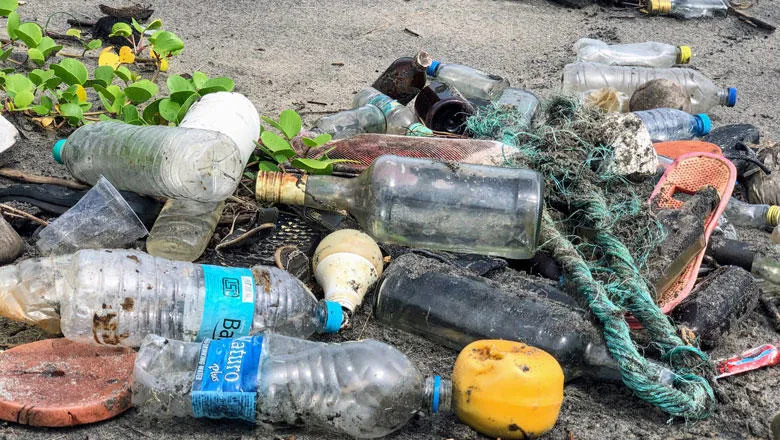GPS-tracked bottles show how litter moves on the human tide

A pilot study has revealed that everyday pedestrian movement - such as walking, kicking, or brushing past litter - can unintentionally propel waste into rivers, adding a previously overlooked human factor to the global plastic pollution crisis.
Researchers from King's College London tracked GPS-tagged plastic bottles during an Oxford vs Cambridge Boat Race, a high-footfall event along the River Thames.
The study found that five of the nine bottles moved significantly under the influence of foot traffic alone - two of which ultimately entered the river.
"This is the first study to demonstrate that human foot traffic, even without deliberate littering, can contribute to the movement of waste," said lead author Dr. Randa Kachef. "It challenges the idea that litter stays where it's dropped."
This is the first study to demonstrate that human foot traffic, even without deliberate littering, can contribute to the movement of waste. It challenges the idea that litter stays where it's dropped.
Dr. Randa Kachef, Department of Geography
Published in Next Research, bottles moved an average of 2.4 metres, with some travelling over 12 metres. Bottles movement patterns aligned with the direction of pedestrian flow, whilst calm weather conditions ruled out wind or rain as contributing factors.
Some bottles reached the riverbank or entered the Thames, suggesting foot traffic alone can facilitate aquatic pollution.
The authors call for a rethink in anti-littering strategies. Since litter can migrate from its original location, targeting cleanup efforts solely at accumulation points may miss the mark.
They suggest installing low-level barriers along riverbanks to intercept mobile litter, and redesigning packaging - such as using square cross-sectioned bottles-to reduce rollability and transportability.
Public awareness campaigns that highlight the unintended consequences of ignoring or kicking litter might also be effective, they say.
The findings raise ethical questions about public complicity. "If kicking a bottle can send it into the river, then everyone who interacts with litter - even passively - shares some responsibility," said Dr. Kachef.
The study positions humans not just as litterers, but as "geomorphic agents"- actively shaping the movement of waste through urban landscapes.






